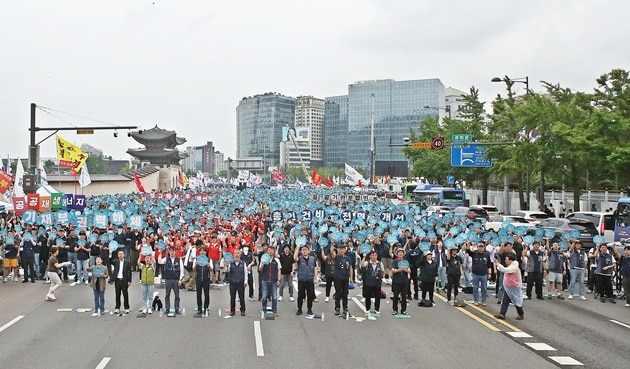Last week the government of Qatar announced sweeping improvements to its labour laws, including the end of the notorious “kafala” system- which denies workers permission to change employers or leave the country without permission. The Council of Ministers of the state of Qatar unanimously endorsed new legislation which allows workers, including millions of migrant workers, to change employers freely. The new law would cover all workers who were excepted by the previous law adopted in 2018, which removed the requirement to obtain exit permits except domestic workers; workers in government and public institutions; workers employed at sea and in agriculture; as well as casual workers. In addition, the Council of Ministers endorsed a new law to establish a non-discriminatory, evidence based minimum wage, the first of its kind in the Gulf States.
These changes are the result of years of pressure on Qatar from the global labor movement, lead by the ITUC, and human rights groups. The decision to hold the FIFA World Cup in Qatar in 2022 triggered a global outcry about the conditions for migrant workers and resulted in a 2017 agreement with the ILO to pursue change.
“I am so proud of what we have been able to collectively achieve in Qatar. Kudos to Sharan Burrow at the ITUC for her determination to see this through,” said Christy Hoffman, General Secretary of UNI Global Union. “This is a major breakthrough in the Gulf States, and showcases the power of global pressure to drive change. Of course there is more change needed in Qatar but the end of the kafala system is a long awaited first step and the non-discriminatory minimum wage is also an important first.”
UNI has been supporting the transformation process through the work of its Property Services Sector, which, together with a fulltime Community Liaison Officer (CLO), is promoting workplace education in the growing private security industry in Qatar.
“Together, with the ITUC and ILO, we are striving to improve and protect workers’ lives in Qatar. We are building a network of security workers and worker committees, which advise, register and process grievances through the Qatari authorities. We also bring security guards together to understand their rights under the new system. It has been very exciting to be part of this process which we expect will deliver real improvements.” said Eddy Stam, Head of UNI Property Services.
Additionally, for the past two years, UNI Property Services has been part of bi-annual meetings between global union federations, the ILO and the Qatari ministry of labour, allowing UNI to help guide and monitor the progress of these labor reforms.
With only 313,000 citizens, Qatar’s swift modernisation has depended on over 2.3 million foreign workers, mostly from Asian and African countries, who worked under the kafala system. Largely due to the 2022 FIFA World Cup and the rise of the tourism sector, the number of migrant workers has exploded in recent years to fulfill the country’s constant need for rapid construction.


